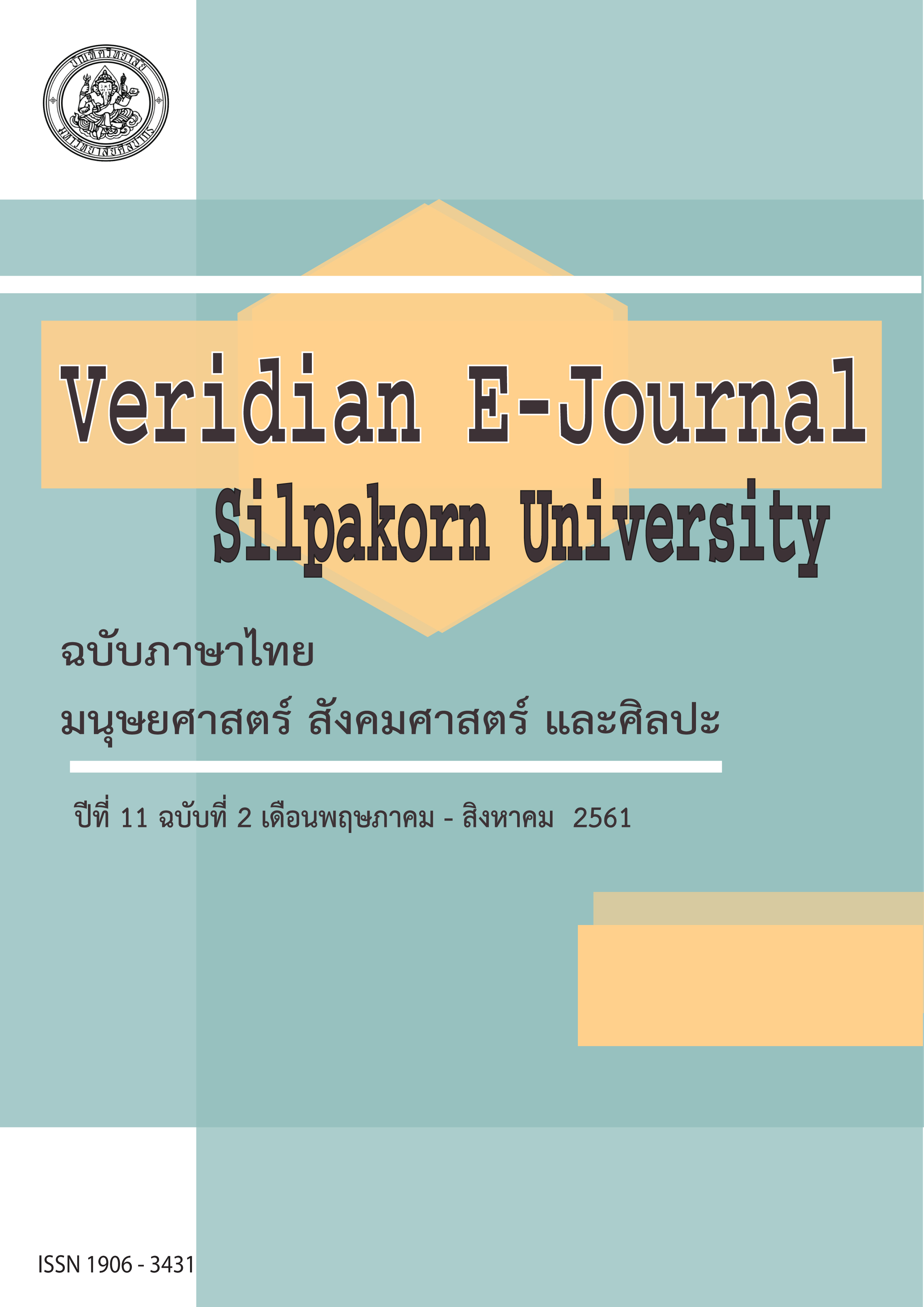แบบจำลองอิทธิพลของภาวะผู้นำเชิงจริยธรรมต่อการรักษาพนักงาน : บทบาทของการแลกเปลี่ยนระหว่างสมาชิกและผู้นำ ความไว้วางใจในผู้บริหาร และเสียงของพนักงานในฐานะตัวแปรคั่นกลาง (A Model of Ethical leadership Influencing Employee retention: The Mediating roles of -) A Model of Ethical leadership Influencing Employee retention: The Mediating roles of Leader member exchange, Management trust, and Employee voice
Main Article Content
Abstract
การศึกษาครั้งนี้ มีวัตถุประสงค์คือ เพื่อศึกษาอิทธิพลของภาวะผู้นำเชิงจริยธรรมที่มีต่อการรักษาพนักงานของบริษัทเอกชนในเขตกรุงเทพมหานครโดยมีตัวแปรการแลกเปลี่ยนระหว่างผู้นำและสมาชิก ความไว้วางใจในผู้บริหาร และ เสียงของพนักงานเป็นตัวแปรคั่นกลาง และ เพื่อทดสอบความสอดคล้องระหว่างแบบจำลองของการวิจัยกับข้อมูลเชิงประจักษ์การวิจัยนี้เป็นการวิจัยเชิงปริมาณ (Quantitative research) ประชากรของการวิจัยคือผู้บริหารฝ่ายทรัพยากรบุคคลของบริษัทเอกชนในเขตกรุงเทพมหานครจำนวน 246,336 บริษัท กลุ่มตัวอย่างในการวิจัยเท่ากับ 520 คน สุ่มตัวอย่างโดยใช้การสุ่มอย่างง่าย (Simple random sampling) เครื่องมือที่ใช้ในการเก็บรวบรวมข้อมูลคือแบบสอบถาม (Questionnaire) การเก็บรวบรวมข้อมูลทำโดยใช้การส่งไปรษณีย์และอีเมล ในการวิเคราะห์ข้อมูลผู้วิจัยใช้สถิติเชิงพรรณนา (Descriptive statistics) ได้แก่ ค่าความถี่ (Frequency) ร้อยละ (Percentage) ค่าเฉลี่ย(Mean) และส่วนเบี่ยงเบนมาตรฐาน (Standard deviation) เพื่อบรรยายลักษณะของกลุ่มตัวอย่าง และระดับของตัวแปรที่ศึกษา ใช้สถิติการวิเคราะห์องค์ประกอบเชิงยืนยัน (Confirmatory factor analysis) ในการทดสอบความตรงเชิงโครง (Construct validity) สร้างของตัวแปร และใช้สถิติการวิเคราะห์เส้นทาง (Path analysis) ในการทดสอบความสอดคล้องของโมเดลการวิจัยกับข้อมูลเชิงประจักษ์และวิเคราะห์ความสัมพันธ์ระหว่างตัวแปรต่าง ๆ ในโมเดล ผลการทดสอบพบว่า แบบจำลองของการวิจัย มีความสอดคล้องกับข้อมูลเชิงประจักษ์ โดยมีดัชนีความสอดคล้องผ่านเกณฑ์ที่กำหนดได้แก่ Chi-square=219.81, df=204, P-value=0.21295, RMSEA=0.012 ผลการทดสอบสมมติฐานพบว่า ภาวะผู้นำเชิงจริยธรรมมีอิทธิพลทางบวก ต่อการแลกเปลี่ยนระหว่างผู้นำกับสมาชิก และมีอิทธิพลทางบวก ต่อความไว้วางใจ ภาวะผู้นำเชิงจริยธรรมมีอิทธิพลทางบวก ต่อเสียงสะท้อนของพนักงาน ความไว้วางใจมีอิทธิพลทางบวกต่อเสียงสะท้อนของพนักงาน การแลกเปลี่ยนระหว่างผู้นำกับสมาชิก มีอิทธิพลทางบวกต่อเสียงสะท้อนของพนักงาน และเสียงสะท้อนของพนักงานมีอิทธิพลทางบวกต่อการรักษาพนักงาน
This study aimed to study the influence of ethical leadership on employee retention with the leader and member exchange, management trust, and employee voice, as the mediator variables. As well as to test the congruence of the model with the empirical data. This research was a quantitative research, whose population were the executives of 246,336 private corporate’s human resource departments. Sample size were 520 units. Simple random sampling technique was employed in research sampling. The data collection tool was the questionnaire. Data collection was conducted by sending using mailing and email. In respect to data analysis, the researcher used descriptive statistics, such as, frequency, percentage, mean, and standard deviation, in order to describe characteristics of the samples and the levels of the variables in this study. The confirmatory factor analysis was used in testing construct validity of the latent variables in the study. And path analysis was employed to test the congruence of the research model with the empirical data as well as to analyze the relationships among variables in the model. The analysis result indicated that the research model was congruence with the empirical data. Since the goodness of fit value had passed the criteria, such as, Chi-square=219.81, df=204, P-value=0.21295, RMSEA=0.012. The result of hypotheses test yielded that Ethical leadership had a positive influence on leader and member exchange. Ethical leadership had a positive influence on management trust and also had a positive influence on employee voice. Management trust had a positive influence on employee voice. Leader and member exchange had a positive influence on employee voice. And employee voice had a positive influence on employee retention.

